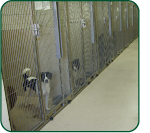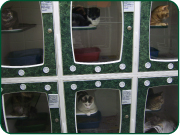What is a Responsible Pet Owner?
 Pets are important and cherished parts of our family lives. After all, where else can a person find such unconditional love and affection as well as the scientifically proven emotional connection we call the human-animal bond? Yet, despite this powerful relationship, animal shelters and rescues are still inundated annually with millions of dogs, cats and other pets that are relinquished for a wide variety of reasons. So, how can we help make sure pets find a “forever home”?
Pets are important and cherished parts of our family lives. After all, where else can a person find such unconditional love and affection as well as the scientifically proven emotional connection we call the human-animal bond? Yet, despite this powerful relationship, animal shelters and rescues are still inundated annually with millions of dogs, cats and other pets that are relinquished for a wide variety of reasons. So, how can we help make sure pets find a “forever home”?
Most people can understand that our animal friends need an appropriate diet, fresh water and necessary veterinary care. But, many fail to see that there are other, less tangible needs that should be addressed if our pets are going to remain in our homes.
In other words, are we first making good decisions when bringing a new pet into our family and then, are we providing the mental, grooming and behavioral requirements of our pets to have a rich life?
The National Council on Pet Population Study and Policy (NCPPSP) spent one year in 12 selected animal shelters across the United States to find out why pet owners give up their pets. Of the 2000 canines sent to shelters, more than 45% of owners cited some sort of behavior issue as one of the reason for relinquishing their dogs. For the almost 1400 felines, human and personal issues (allergies, no time for the pet, new baby, etc) were the most common reasons for surrender.
“The biggest problem we see with dogs is the unruly, untrained adolescent animal who has become too much of a handful for the family,” says Dr. Martha Smith, Vice-President of Animal Welfare at the Animal Rescue League of Boston. “We spend significant time and energy giving these dogs some basic obedience training and that helps with their adoptability, getting them into a loving home more quickly.”
The NCPPSP study confirmed Dr. Smith’s comments. Almost 50% of the dogs relinquished were between 5 months and 3 years of age and 96% of them had not received any obedience training. In addition, 33% of the dogs and more than 46% of the cats surrendered had not been to a veterinarian.
What can we learn from this in order to be better pet owners and make a real difference in the numbers of pets in shelters?
The first step is to completely understand all of the needs of the pet you want to adopt and then make a proper selection. Highly active dog breeds, like Australian Shepherds or Irish Setters, may not be suited for a life in a city apartment. Similarly, an older cat could be less tolerant of very young children and be likely to nip or scratch.
Next, be careful if you decide to adopt a “free” dog or cat advertised locally or one from a friend. While the pet may be free, there will still be a variety of on-going expenses. These include good food, vaccinations, parasite prevention and even grooming. Some may have more involved issues and it is the responsibility of the adopting family to provide proper care.
Good behavior/training and mental stimulation (or environmental enrichment) is often ignored. There’s an old adage that a tired dog is a good dog and owners should always find time for interaction and play with their canine friends. The same is true for cats.
Finally, pet owners should always be prepared for some sort of animal emergency. Traumatic injuries and serious illnesses are common occurrences and, sadly, many owners will either surrender the pet to a shelter or euthanize this beloved family member simply because of the cost. Plan for these emergencies and major illnesses in advance with a pet health savings plan or a well-researched pet insurance policy. People who use their pet health insurance policy say they could not live without it. Such policies will often times save the life of your best friend.
Your veterinarian is a perfect source of advice on any of these topics. The whole veterinary team wants to see your family stay together, including all of the furry, four legged members. Working with your veterinarian and making good decisions can help you become a truly dedicated and responsible pet owner – and that’s best for everyone


